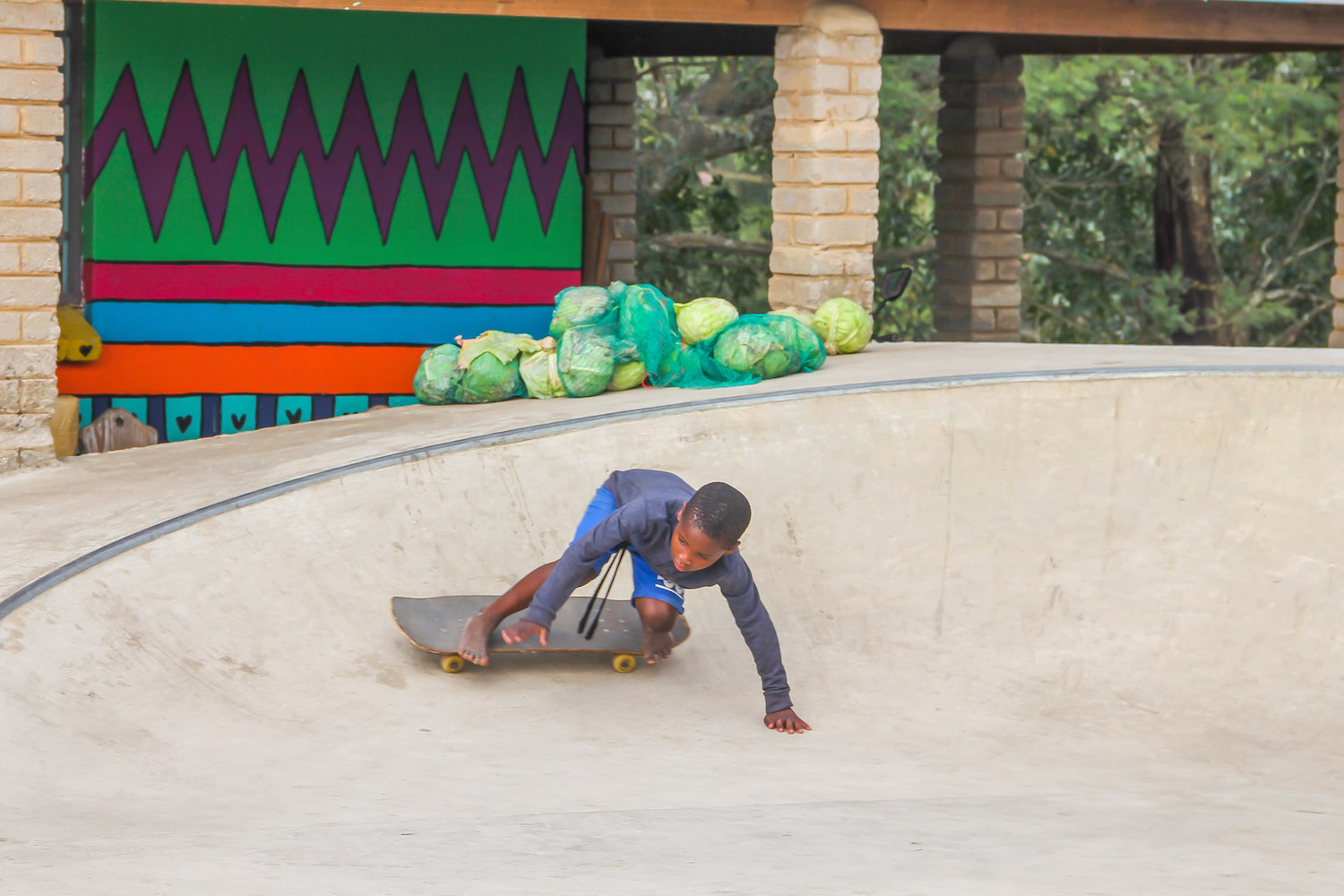
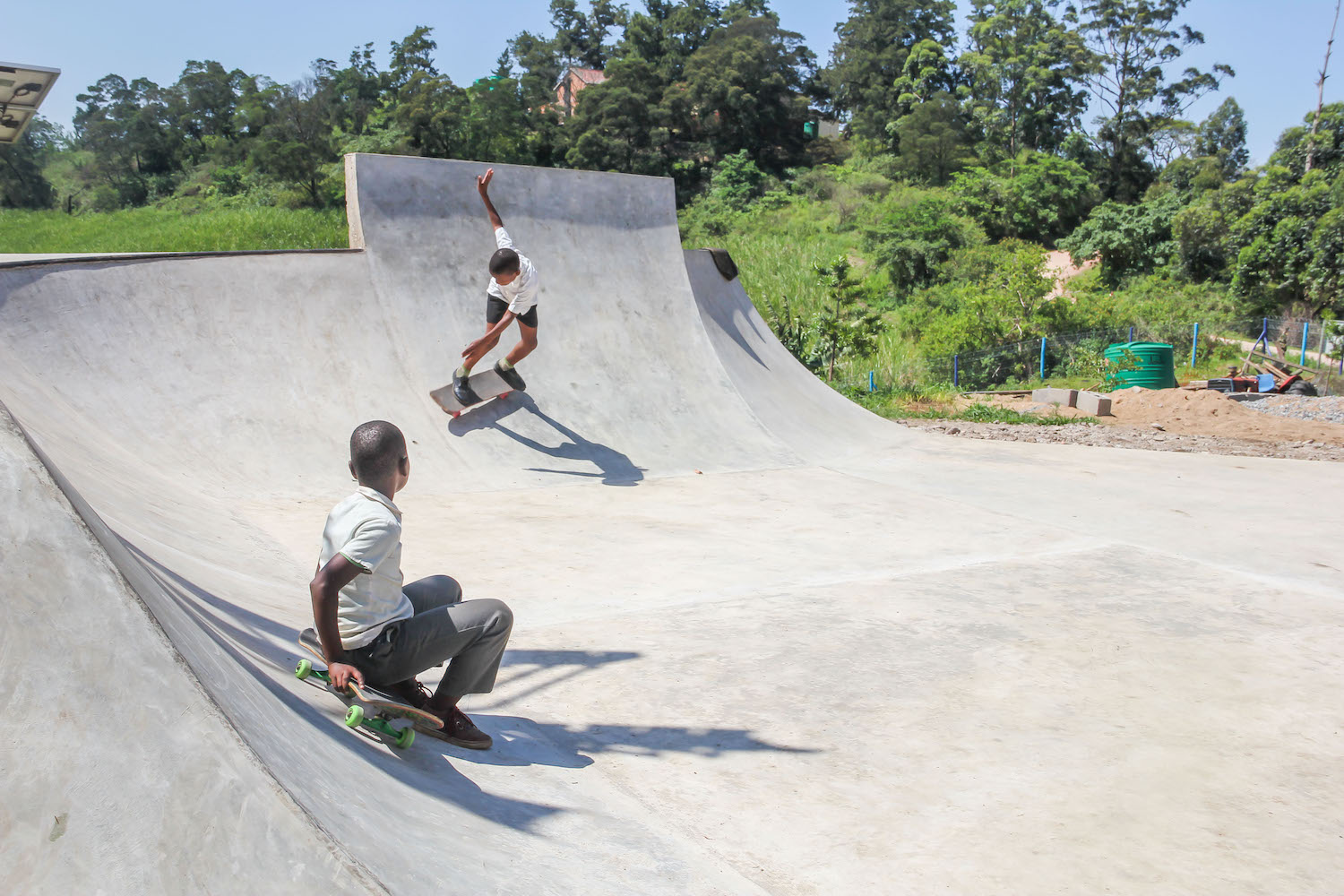
“I have this idea: If you think of something, you can do it. Skateboarding is ideas that are put into action… You can do any trick you really want to.” – Marc Johnson
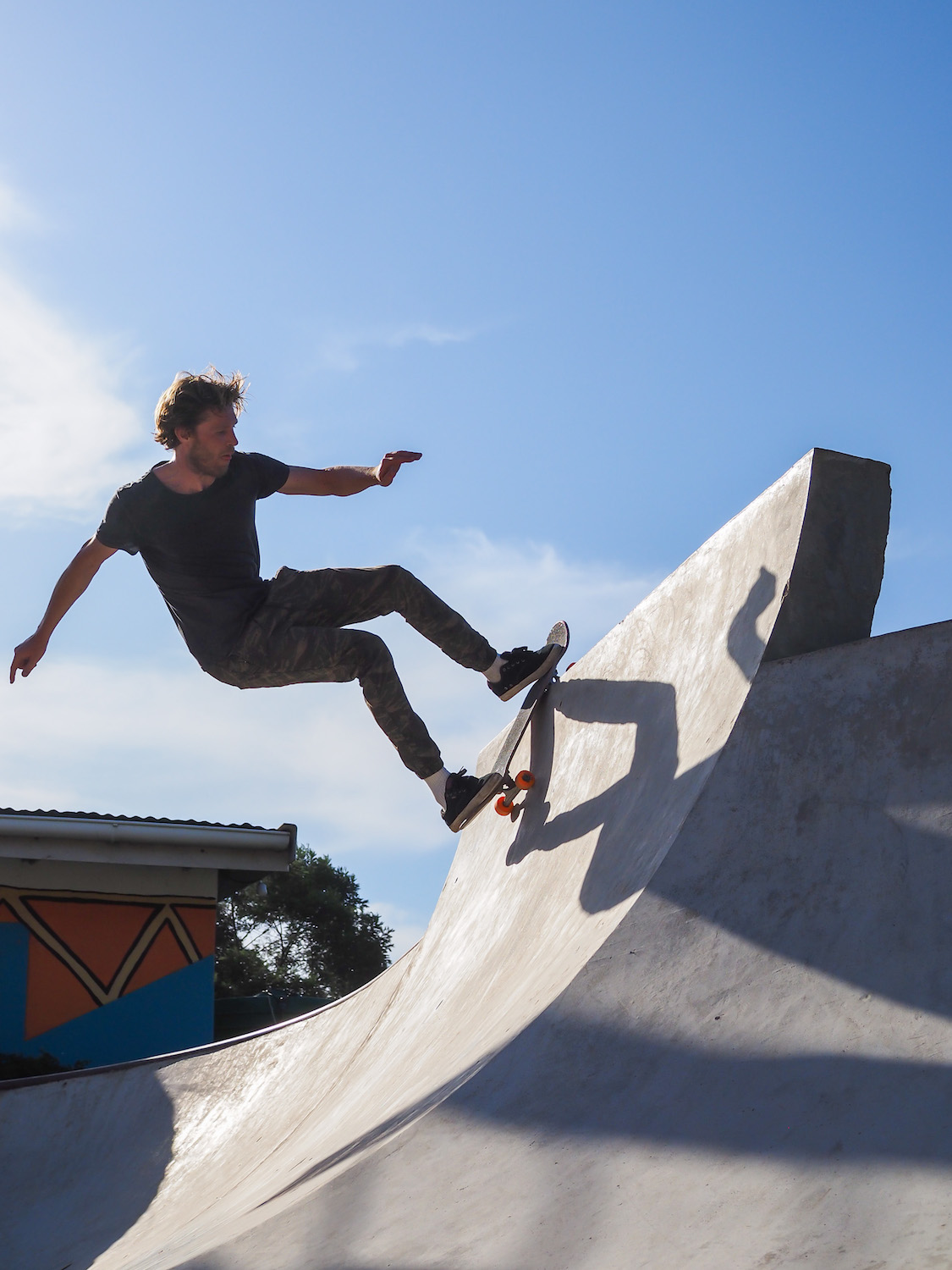
“The primary way that mammals learn to socialise in groups is through play. The more complex the organism, the more this social behaviour is developed through play. Given that humans are the current apex of nature’s complexity pyramid, we owe most of our learned social behaviour to the types of play that we engage in, which effectively means that the games and sports we engage in shape the way we interact with the world around us and other people within it.” comments Tyler Howard, Skater and Managing Director of Thanda.
When you look at most traditional sports, like soccer, basketball, or rugby, one of their key shared characteristics is that they are heavily structured by an authority that benefits from people learning to obey society’s own playbook. We find parallels with sports to ancient and modern empires, like the Romans and Nazi Germany, as a way to display military strength, perpetuate societal structures and promote intense patriotism. It is not a coincidence that the most powerful countries in our world have the strongest sports teams – their association of a high military expenditure to Olympic medals proves that. As a method of education and positive growth for individuals, the presence of rules, referees, coaches, timekeepers, and so on, act as boundaries for the skills individual players can learn. As a result, they ask us to direct our creative energies into a relatively constrained space. They teach us how to socialize within certain constraints, constraints often made by illegitimate authorities that we are not really able to question or modify as we play. Over time, if this sort of play is all we are exposed to, this unquestioning obedience can become habit. And if no one inside of a system has the ability to scrutinize it, the system is destined to fail.

The introduction of skateboarding: not Us vs. Them
In the 1950s, a few Californian surfers decided why not surf concrete? Pioneers of invention, they slapped wheels onto a piece of wood and created a sport that had no structure with the original idea being that skating is possible almost anywhere. The playing field is practically infinite – there’s no clock to tell you when to start and stop, and the only person coaching or pushing you is yourself. Skating requires you to develop internal senses of motivation, accomplishment, and accountability, where you are responsible for your own actions, and for understanding how those actions affect the other people around you. In other sports, the way you interact with your fellow players follows the Us vs. Them dynamic—it doesn’t matter who they are or how similar they might actually be to you, they are the opponent (i.e. the only thing between you and success).
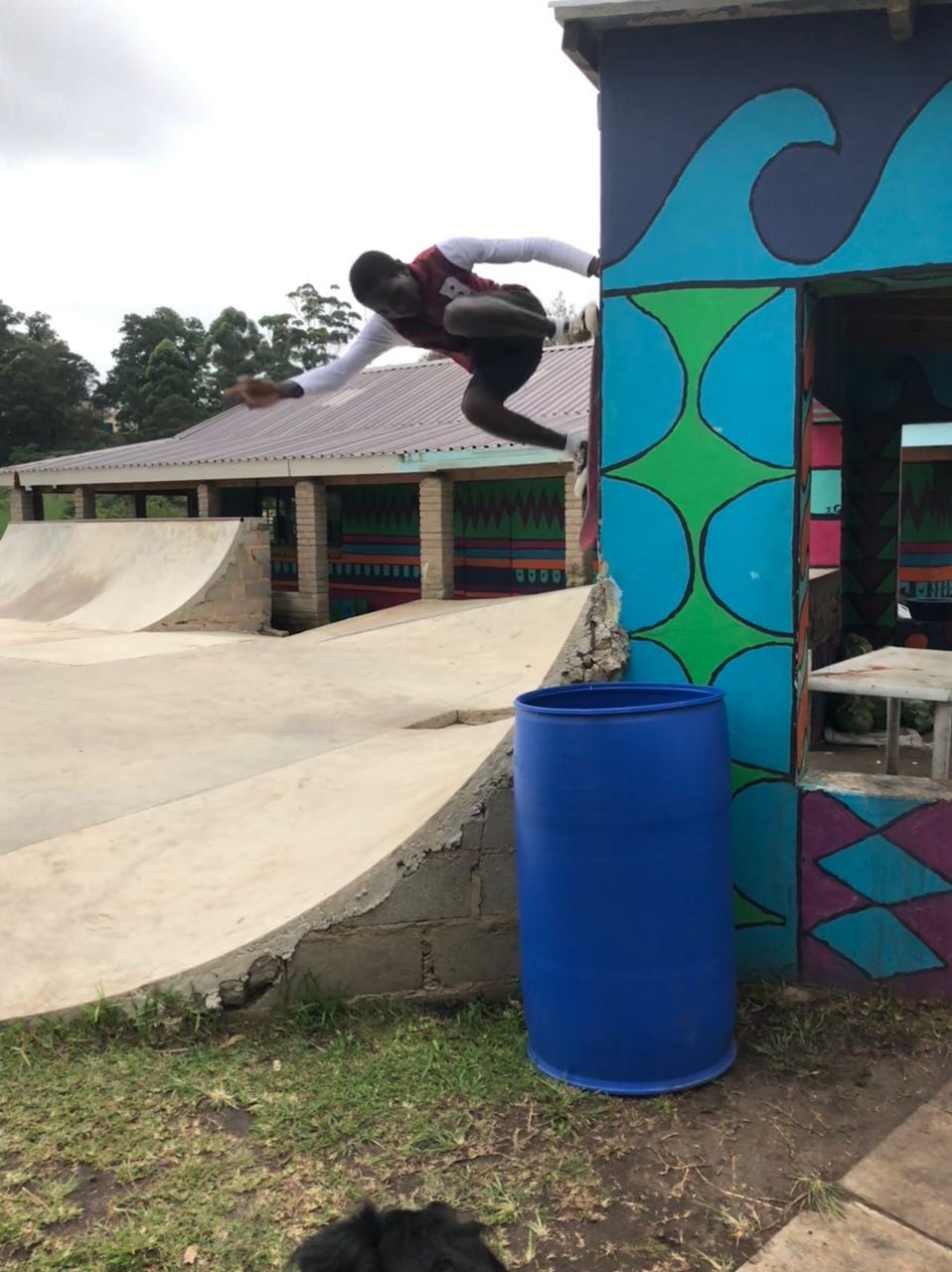
While there are many constructive skills we learn from sports, such as physical ability and health, teamwork, and determination, in learning to kick a soccer ball or swing a cricket bat, young people also learn to seek, discover, and expose the weaknesses of the people around them as a means of personal gain. Luis Suarez’s handball in the 2010 Football World Cup, the prevalence of doping in professional cycling, and Boxer Mike Tyson cannibalising Evander Holyfield’s ear in front of a cheering crowd, show us that when you play to win, sports sometimes encourage players to make Machiavellian or immoral decisions, whether those decisions lie within the rules of the arena or not. Tyler Howard believes while these acts are seemingly harmless, this sort of play ingrains in its participants the idea that, “in order to feel good about yourself, you have to make another person, or a group of people, feel bad. When individuals act like this in government, corporations, education, and other institutions, it hinders progress as a whole for the positive social growth of humanity.” What we are left with is a zero-sum system: every win has an accompanying loss, or worse, losses.

“The biggest obstacle to creativity is breaking through the barrier of disbelief.” – Rodney Mullen
Skateboarding embodies Ubuntu: I am because we are
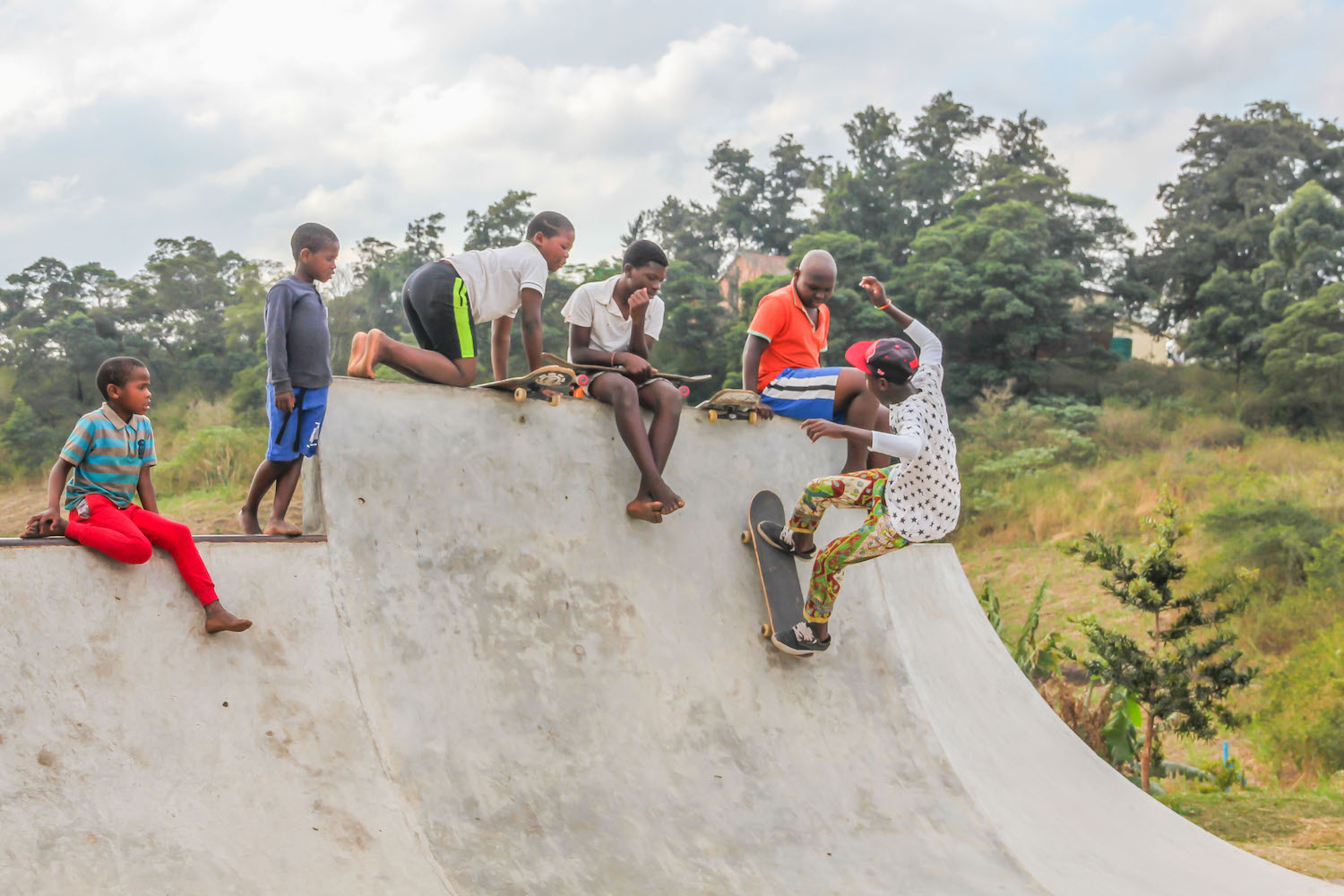
This isn’t the case with skateboarding, where the closest thing you can have to opponents are the laws of physics. That’s not to say there isn’t competition—skaters love to push each other to try to one-up each other’s tricks. The difference is, this sense of competition is motivational for everyone involved. If someone lands a trick, that doesn’t make any other skater, or any of the tricks they’ve landed, any worse. It simply sets the bar higher for everyone involved, and gets the other skaters watching amped to push themselves even further. Every “victory,” which could be landing a new trick or finding a new line or even landing an old trick smoother than you ever have before, builds on top of the last. Everyone at the park can contribute to the experience of others by pushing themselves to new heights. This sort of social interaction shows us the power we have as individuals to better the people around us and teaches us how to make effective, positive contributions to our communities – helping those around us while still fulfilling our own needs. More so than any of the standard ball-chasing sports, this sort of play embodies the South African ideal of ubuntu: I am because we are.
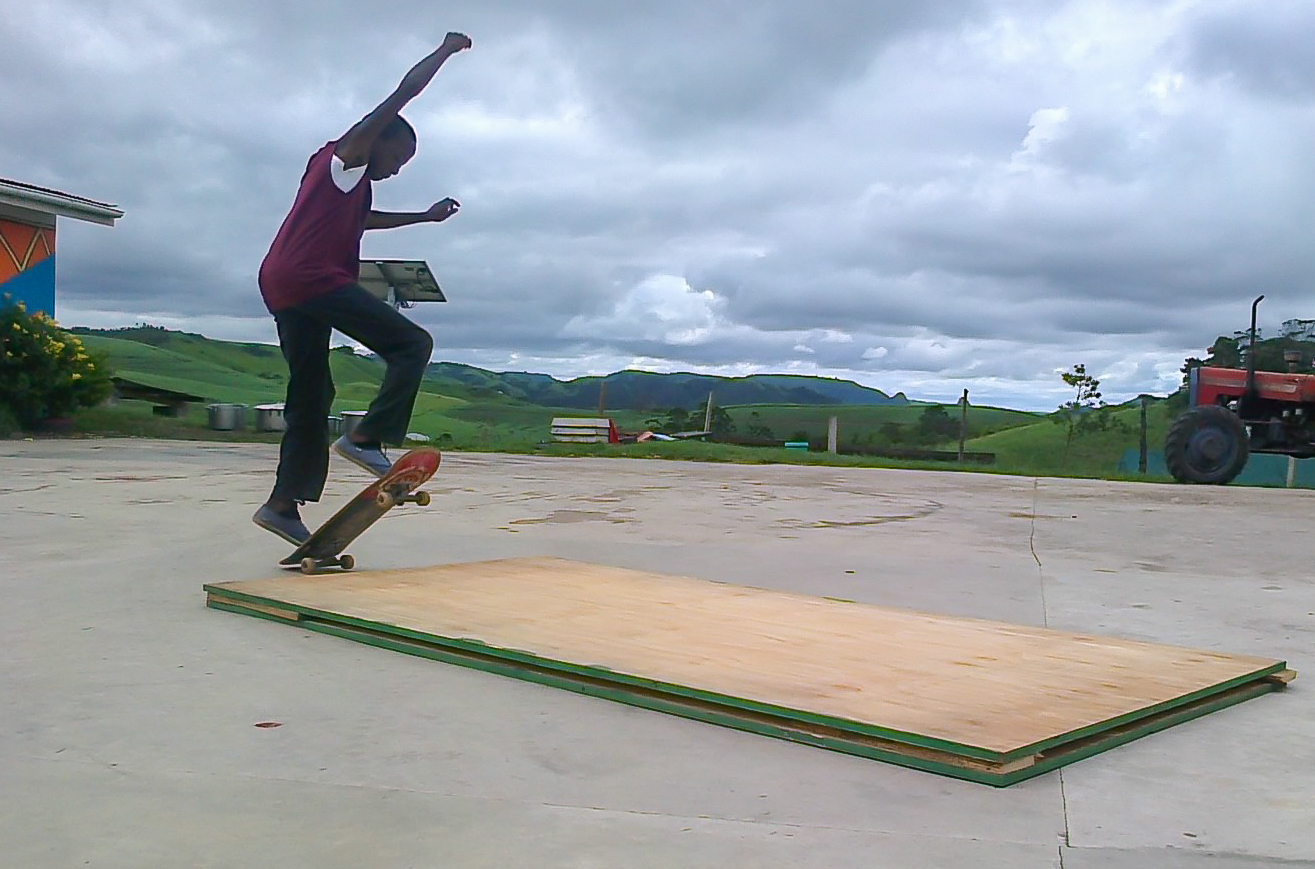
Skateboarding transforms physical spaces
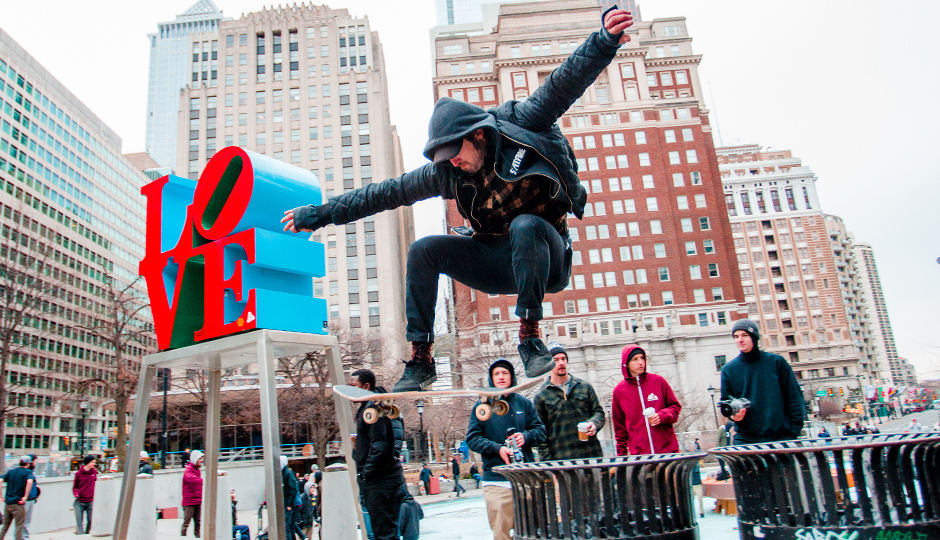
Skateboarding has the ability to transform a physical space and the way we view it. On a skateboard, no set of stairs is just a set of stairs, no pothole is just a pothole, and no crack in pavement is just a crack. They are all opportunities. Could I ollie that gap? Could I grind on that rail? Skaters are always imagining new ways to do what they do, with the world as their playing field. This creativity can then pool together to transform the culture of certain spaces, like London’s South bank or Philadelphia’s Love Park. Skaters are able to visualize and use these places in ways their architects likely never envisioned, pushing the limits of physical possibilities through constant innovation. Taking Marc Johnson’s words to heart, skateboarding teaches you that “if you think of something, you can do it.” Of course, learning any new tricks requires resilience and hard work, but the process of falling down and getting back up is also one of the most valuable skills a skater learns. Learning from your failures and having the self-esteem to continue on, even if you’ve failed before, are vital skills to develop in skateboarding, and once you have them, their applications outside of skating are endless. Learning how to skate, therefore, not only motivates you to come up with new ways to interact with the world around you, but also gives you an avenue to bring those ideas into reality. And while it’s often considered destructive or disrespectful by outsiders, skateboarding is actually one of the best ways to develop a wide range of skills crucial to thriving in the modern world.
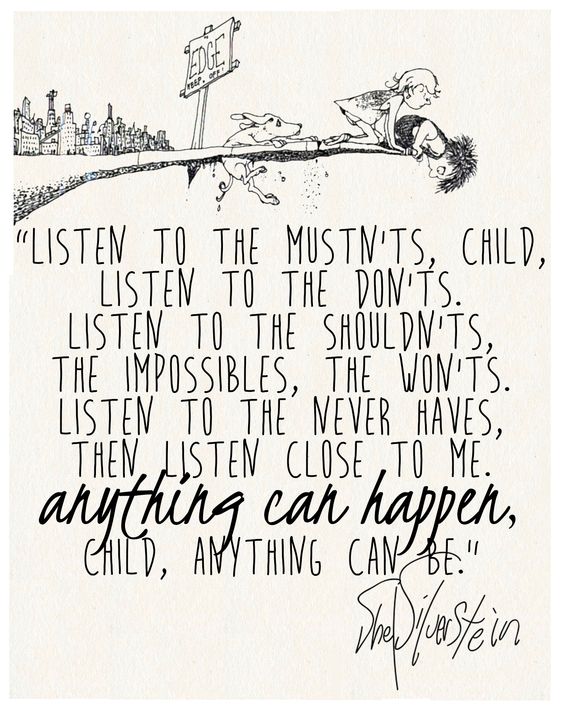
The world is overflowing with mustn’ts, don’t’s, and shouldn’t’s, and competitive sports are full of them. By breaking away from the guidelines, boundaries, and rules of sport, it is not encouraging rebelliousness just for the sake of being rebellious, but asking children to look beyond those boundaries – to literally think outside of the box, the arena, or the soccer pitch and put their ideas, whatever they may be, into action.
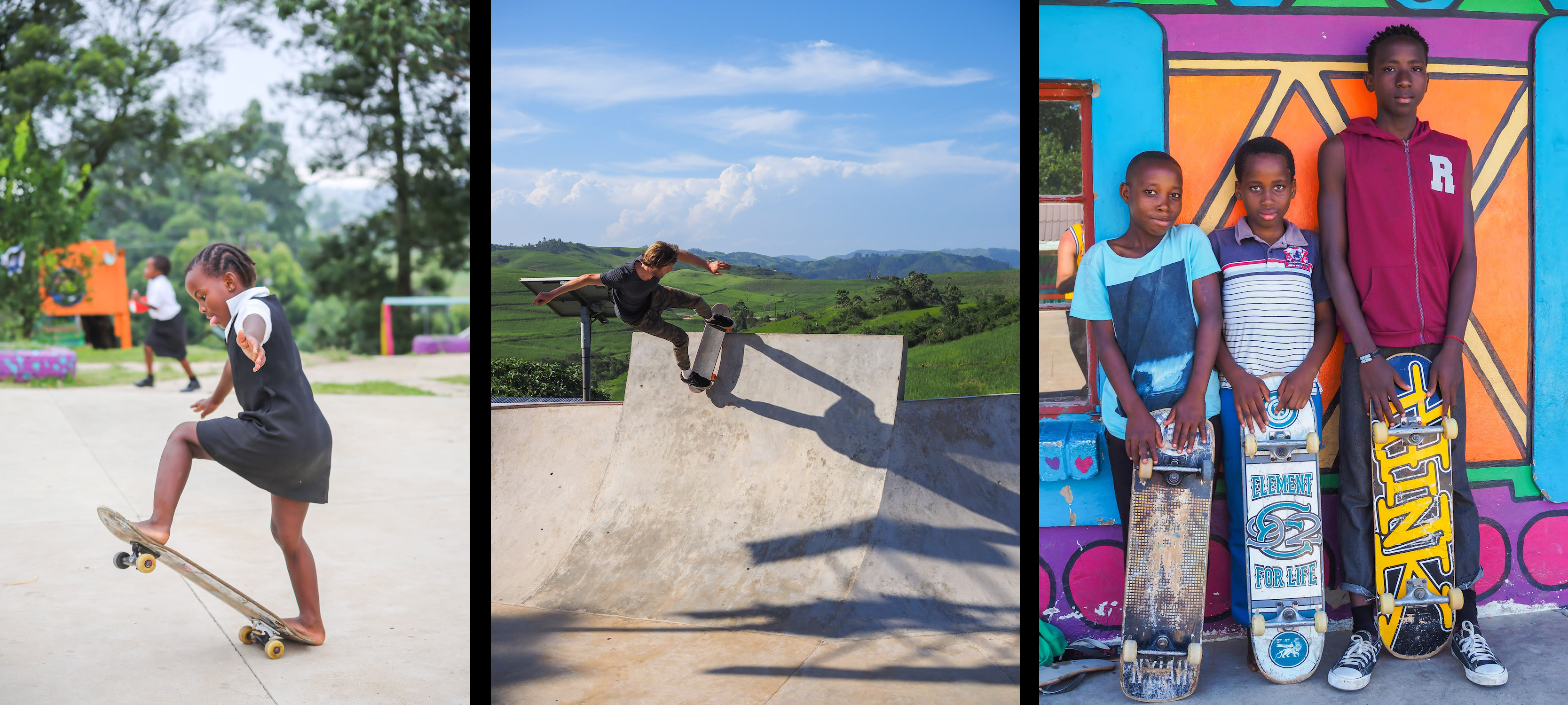



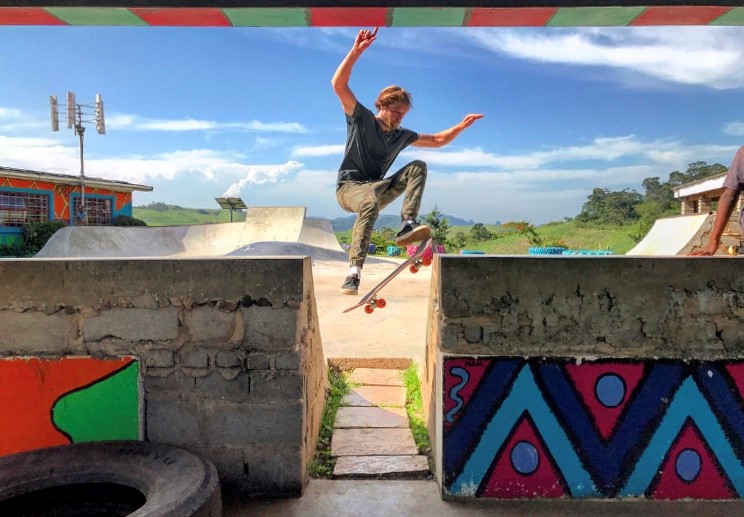
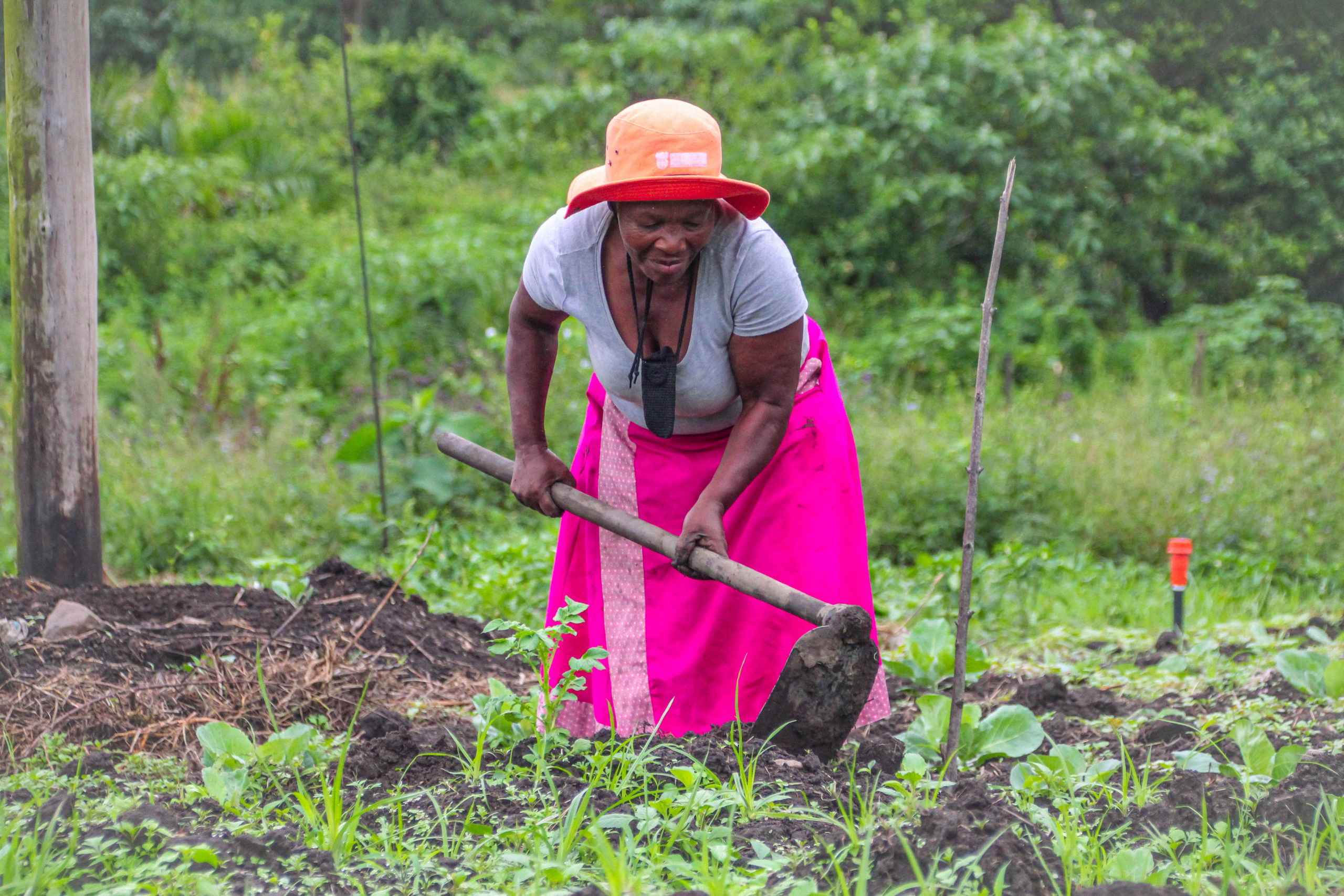
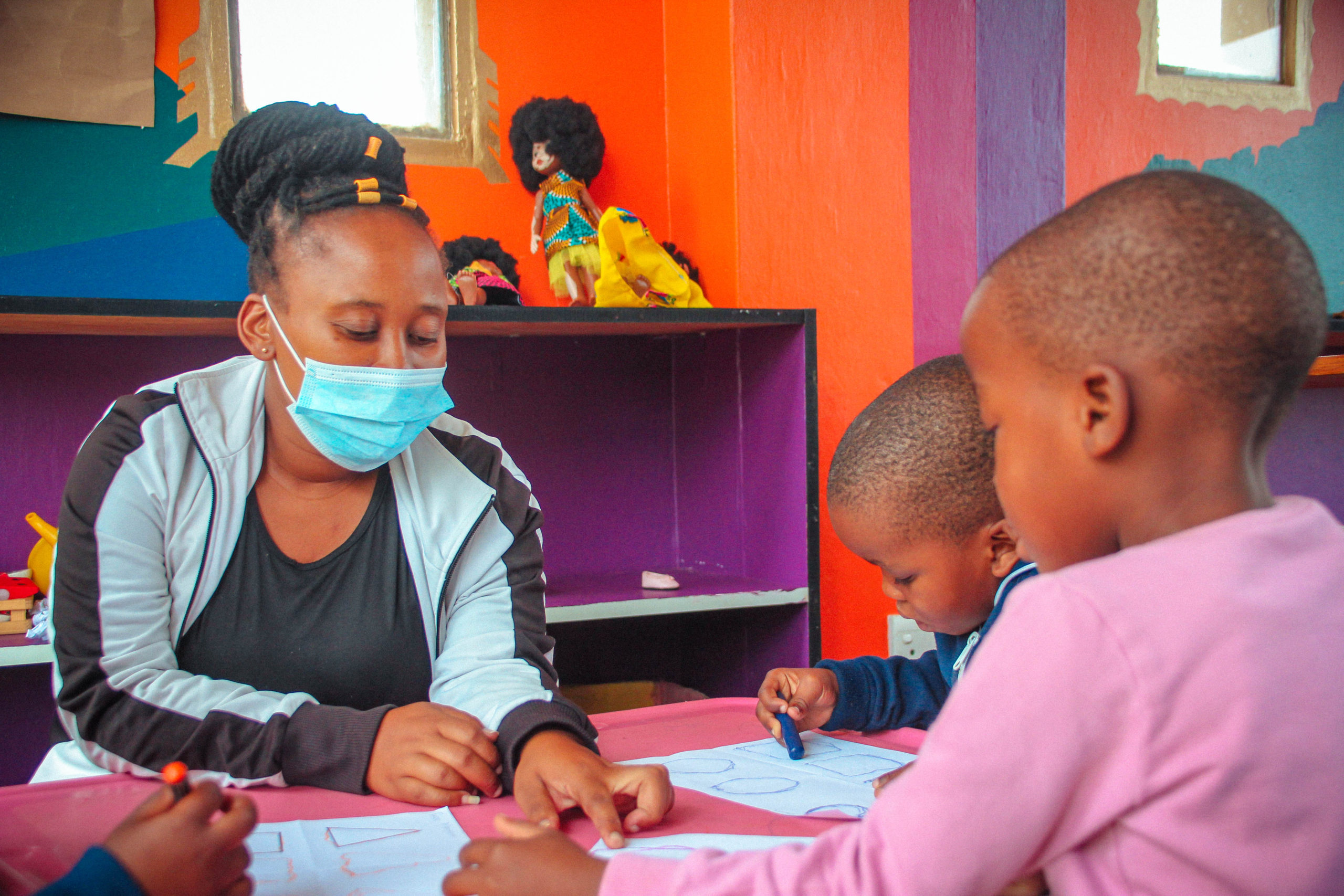
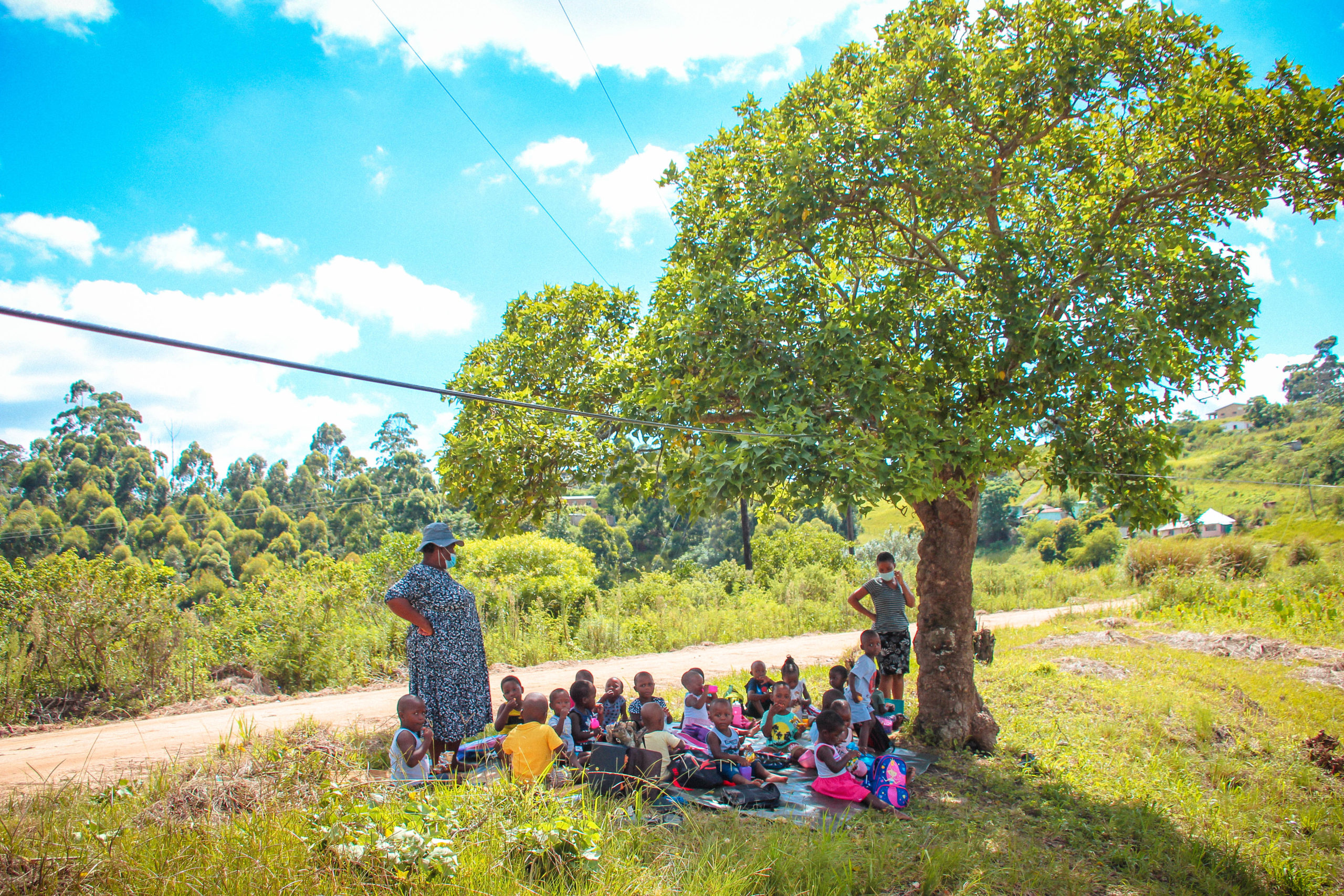
2 Comments
Tim
Mar, 12, 2018Good article. Sounds like you are doing a great cause through skateboarding. Keep up the good work.
-Tim
My blog: [Electric Skateboard Guide](https://www.electricskateboardguide.com/)
Alicia Carter
Mar, 13, 2018Thank you, Tim! Great website with some valuable information for skaters that you have put together. Let us know if you are ever in South Africa or would like to get in touch. We would love to connect with more of the global skateboarding community. Our email is info@thanda.org